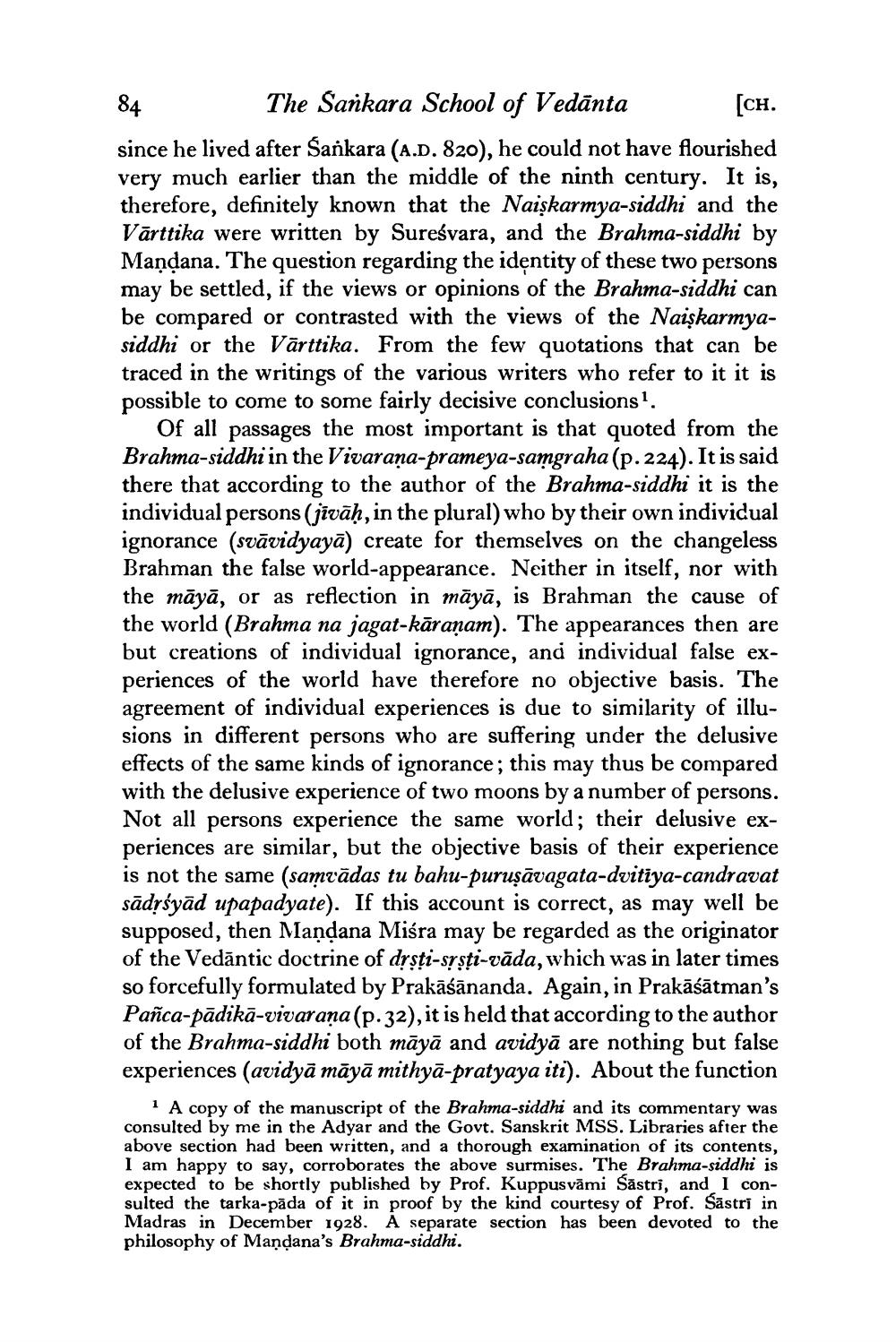________________
84
The Sankara School of Vedānta [ch. since he lived after Sankara (A.D. 820), he could not have flourished very much earlier than the middle of the ninth century. It is, therefore, definitely known that the Naişkarmya-siddhi and the Vārttika were written by Sureśvara, and the Brahma-siddhi by Mandana. The question regarding the identity of these two persons may be settled, if the views or opinions of the Brahma-siddhi can be compared or contrasted with the views of the Naişkarmyasiddhi or the Vārttika. From the few quotations that can be traced in the writings of the various writers who refer to it it is possible to come to some fairly decisive conclusions
Of all passages the most important is that quoted from the Brahma-siddhi in the Vivarana-prameya-samgraha (p.224). It is said there that according to the author of the Brahma-siddhi it is the individual persons (jīvāḥ, in the plural) who by their own individual ignorance (svāvidyayā) create for themselves on the changeless Brahman the false world-appearance. Neither in itself, nor with the māyā, or as reflection in māyā, is Brahman the cause of the world (Brahma na jagat-kāraṇam). The appearances then are but creations of individual ignorance, and individual false experiences of the world have therefore no objective basis. The agreement of individual experiences is due to similarity of illusions in different persons who are suffering under the delusive effects of the same kinds of ignorance; this may thus be compared with the delusive experience of two moons by a number of persons. Not all persons experience the same world; their delusive experiences are similar, but the objective basis of their experience is not the same (samvādas tu bahu-puruşāvagata-dvitiya-candravat sādrśyād upapadyate). If this account is correct, as may well be supposed, then Mandana Miśra may be regarded as the originator of the Vedāntic doctrine of drsți-sysți-vāda, which was in later times so forcefully formulated by Prakāśānanda. Again, in Prakāśātman's Pañca-pādikā-vivarana(p.32), it is held that according to the author of the Brahma-siddhi both māyā and avidyā are nothing but false experiences (avidyā māyā mithyā-pratyaya iti). About the function
1 A copy of the manuscript of the Brahma-siddhi and its commentary was consulted by me in the Adyar and the Govt. Sanskrit MSS. Libraries after the above section had been written, and a thorough examination of its contents, I am happy to say, corroborates the above surmises. The Brahma-siddhi is expected to be shortly published by Prof. Kuppusvāmi Săstri, and I consulted the tarka-pāda of it in proof by the kind courtesy of Prof. Šāstri in Madras in December 1928. A separate section has been devoted to the philosophy of Mandana's Brahma-siddhi.




